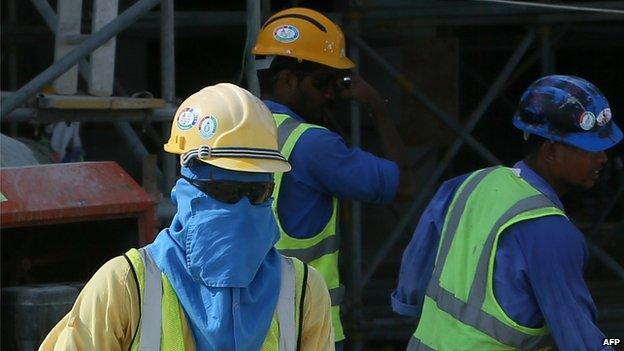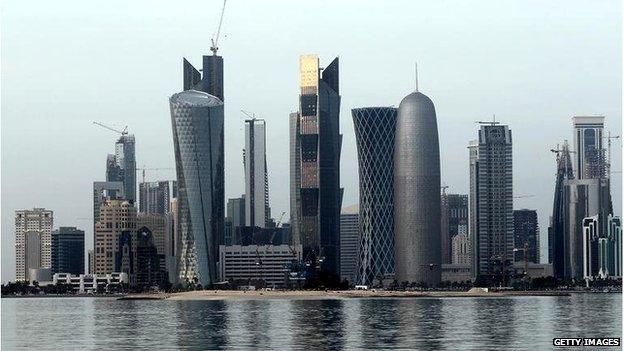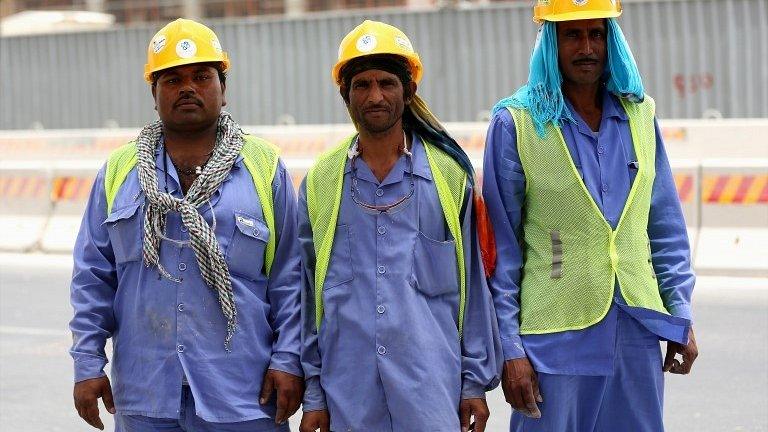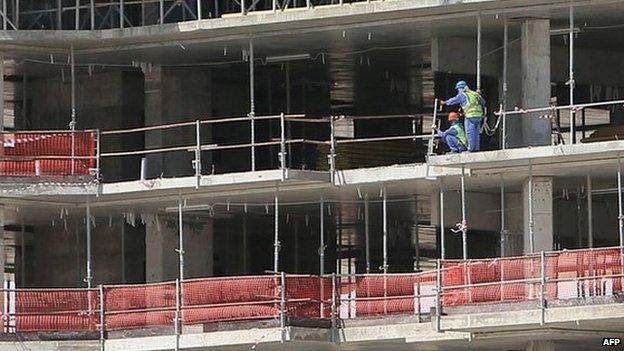Fifa World Cup 2022: Qatar failing migrants - Amnesty International
- Published

Amnesty's report said that Qatar was "lagging behind" in improving worker conditions
Qatar is failing to tackle the abuse of migrant workers, Amnesty International has warned, six months after work began on the Fifa World Cup 2022 stadiums.
In May, Qatar vowed to improve the rights of migrants in the Gulf state amid growing alarm at their treatment.
But Amnesty said progress to end exploitation had been minimal, external.
Among others, the report highlighted that Qatar was "lagging behind" in reforming controversial laws that tie migrants to a single employer.
Amnesty said that requirements that workers obtain exit permits from their employers in order to leave the country were also still in place.
Sherif Elsayed-Ali, Head of Refugee and Migrants' Rights at AI, said: "Time is running out fast. It has been four years since Qatar won the bid to host the World Cup, putting itself in the global spotlight, so far its response to migrant labour abuses has not been much more than promises of action and draft laws."
"Urgent action is needed to ensure we do not end up with a World Cup tournament that is built on forced labour and exploitation."

The lure of Qatar - one of the richest countries in the world - draws thousands of foreign workers
The Gulf state has seen an influx of foreign workers ahead of the football tournament and expatriates now make up the bulk of the workforce in the country.
Earlier in November, Qatar's Sports Minister Salah bin Ghanem bin Nasser al-Ali told The Associated Press news agency that the country planned to implement labour reforms in the "next few months".
Amnesty says the proposals do not go far enough.
The report said that Qatari officials increasingly acknowledge the need for improvement but that widespread changes must happen in the coming months.
A failure to put serious changes in place would "call into question whether the Qatari authorities are serious about reform," said AI.
More than 180 migrant workers died in Qatar last year and a significant number are believed to have suffered injuries as a result of unsafe working practices.
Qatar is reported to be spending more than $200bn (£121bn) on a series of infrastructure projects, and says the World Cup is a catalyst for a nationwide building project.
- Published14 May 2014

- Published7 March 2014
- Published6 April 2014

- Published3 December 2018